Which companies are winning the race to rule the future?
The firms fighting for future supremacy
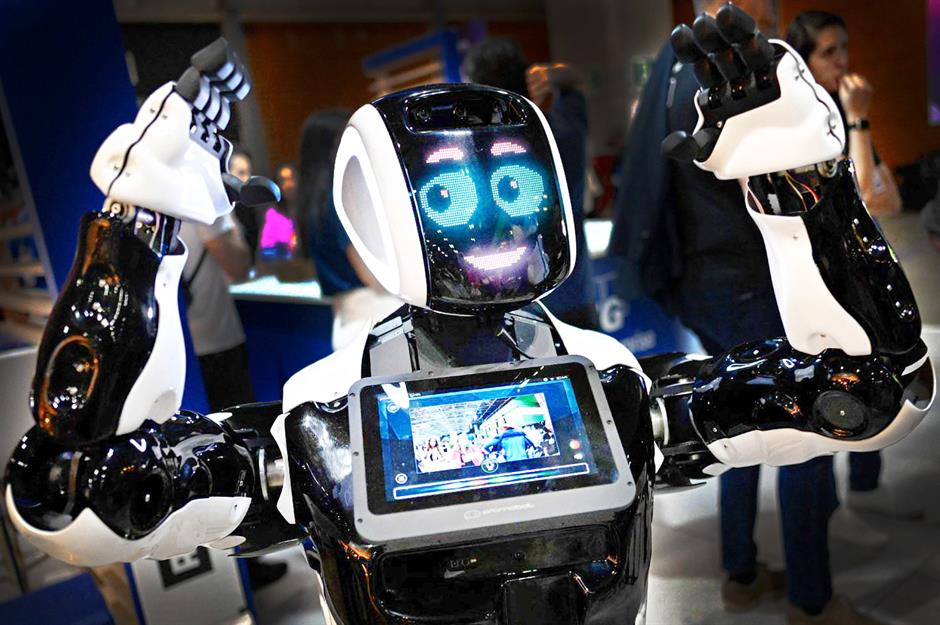
Hold on tight: the Fourth Industrial Revolution (also referred to as "Industry 4.0" by those in the know) is officially upon us.
Super-exciting technological advances are coming in thick and fast at the moment, including everything from electric and driverless cars to artificial intelligence and virtual reality.
With innovations rolling out at warp speed and the competition hotting up across a number of key emerging industries, read on to discover which trailblazing companies are winning the race to rule the future. All dollar amounts in US dollars.
Artificial intelligence

Artificial intelligence (AI) is progressing at a remarkably rapid pace, despite warnings from tech leaders of its potential hazards.
These risks span the full dystopian gamut and include its potential for spreading disinformation, stealing millions of jobs, and perhaps even gaining sentience and wiping out humanity. Yikes.
Thankfully, governments are working to regulate the unstoppable innovation. The EU is leading the way and has just passed the Artificial Intelligence Act, which is the world's first AI regulation legislation.
Artificial intelligence

So-called 'generative AI' tools such as ChatGPT, Google Bard, and DALL-E 2 have already taken the world by storm.
AI has potential applications in just about every industry and is crucial to almost all the leading emerging technologies, with research from IBM revealing that around half of all major firms worldwide plan to integrate AI into their businesses.
According to PwC, the technology could be worth a monster $15.7 trillion (£12tn) to the global economy by 2030.
Sponsored Content
Artificial intelligence
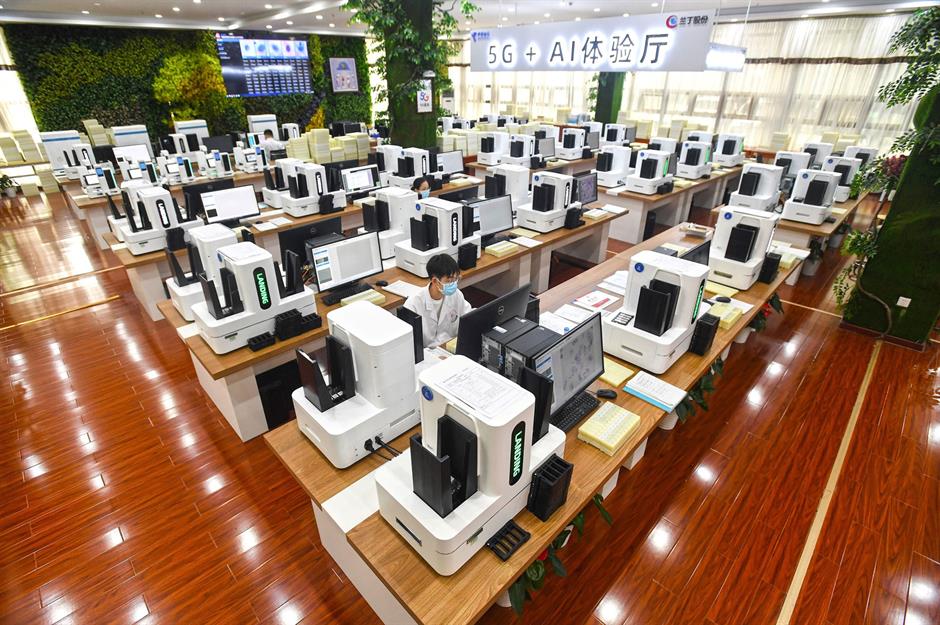
America is currently number one in the AI arms race, with US tech giants such as ChatGPT backer Microsoft, Google parent Alphabet, Nvidia, Tesla, and IBM all ruling the roost.
China is the current runner-up and is the major competition by far. Flush with government money, Chinese firms such as Alibaba, Tencent, and Baidu have become heavily involved with AI and are making impressive progress in the field – though whether they'll be able to surpass their US counterparts remains to be seen...
Robotics
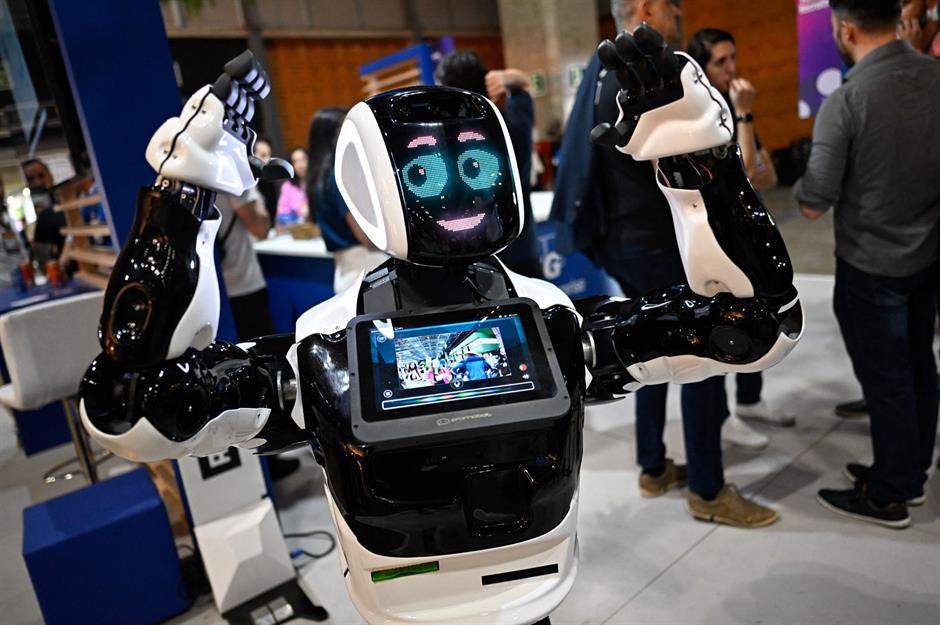
Buoyed on by the developments in AI, especially in the area of machine learning, robots are becoming increasingly sophisticated and adept at performing a jaw-dropping variety of tasks across many fields.
These jobs can range from complex manufacturing to caregiving, with factory work in particular moving rapidly towards total automation.
Robotics
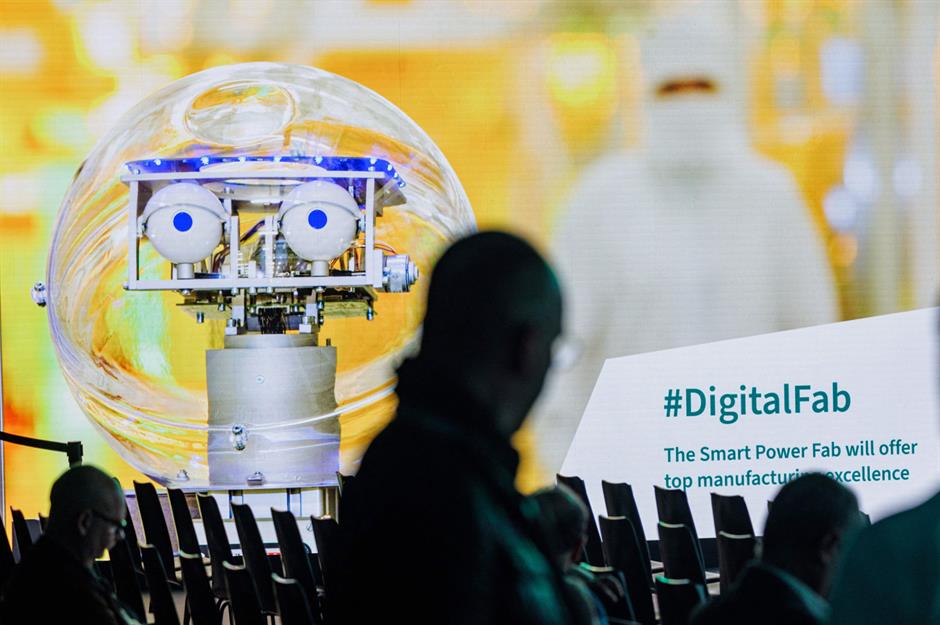
According to McKinsey, industrial companies are stepping up the transition, with many devoting around a quarter of their spending to automation and robots.
Hundreds of millions of roles currently undertaken by humans are set to be displaced, although these job losses are likely to be offset by the creation of new opportunities. The boost to productivity will undoubtedly be phenomenal.
Sponsored Content
Robotics
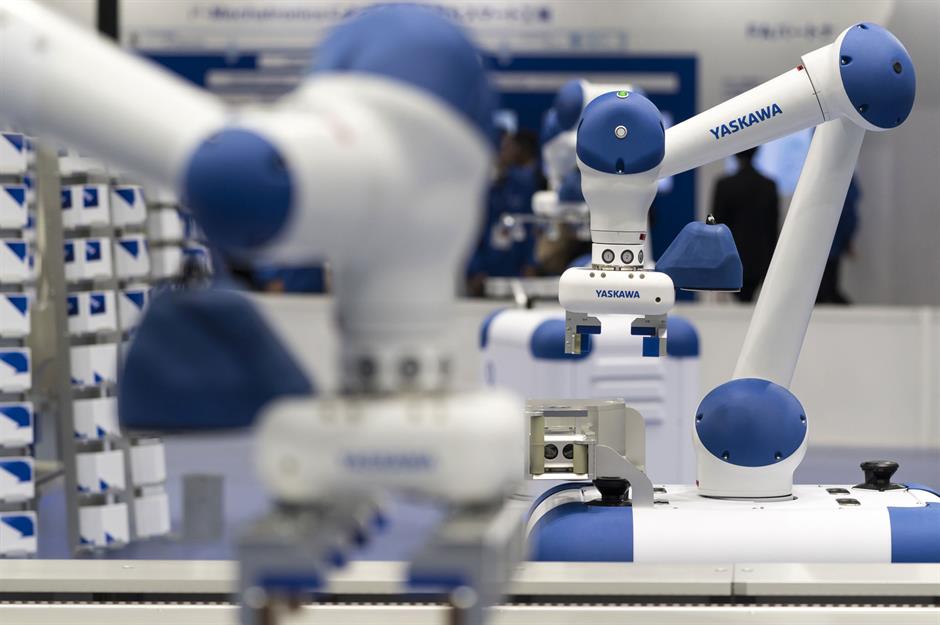
The US may dominate the field of AI, but when it comes to robotics other nations are racing ahead.
Japan has been dubbed a "robotics superpower", although South Korea is currently the world's most automated country.
The world's four largest manufacturers of robotics are currently Switzerland's ABB, Japanese firms KUKA and Yaskawa, and Germany's Fanuc. Other major players in the robotics arena include Siemens, Tesla, and Sony.
Extended reality
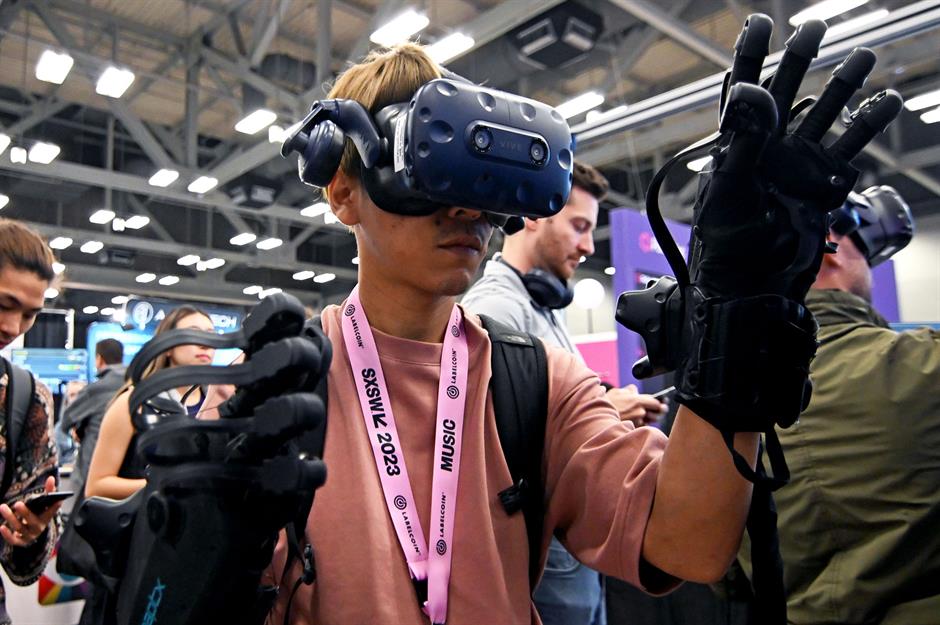
Extended reality (XR) – the umbrella term for virtual reality (VR), augmented reality (AR), and mixed reality (MR) – has been relatively slow to take off, but things are about to change.
Tech giants and capital-rich start-ups alike are pulling out all the stops to make XR a literal reality, pumping big bucks into developing metaverses, headsets, glasses, and other XR-related technologies.
Extended reality

XR can be applied to everything from healthcare, design, and manufacturing to e-commerce, education, and entertainment, so it's not hard to figure out why it's generating so much excitement.
In fact, a recent study by Precedence Research predicts that the XR market will be worth $345 billion (£269bn) by 2030, which is an almost tenfold increase from this year.
According to leading American XR company Qualcomm, the ultimate goal is to integrate a VR headset and AR glasses with a smartphone to create "one device to rule them all".
Sponsored Content
Extended reality
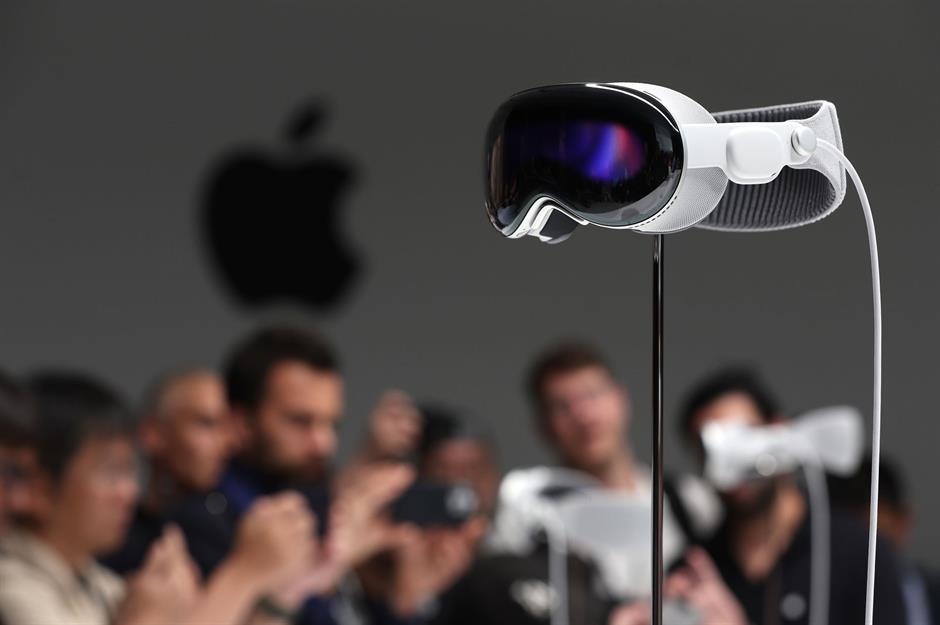
America is leading the way with XR, although China and a number of nations around Europe are also investing big.
Meta, with its Meta Quest headsets and ever-expanding Metaverse, is the current global VR market leader, though Apple, which just released its Vision Pro headset, seems to be tops for AR.
Other Big Tech leaders in the XR space include Microsoft, Nvidia, and Alphabet, while Magic Leap, Unity, and Improbable are among the most exciting XR start-ups.
Renewable energy
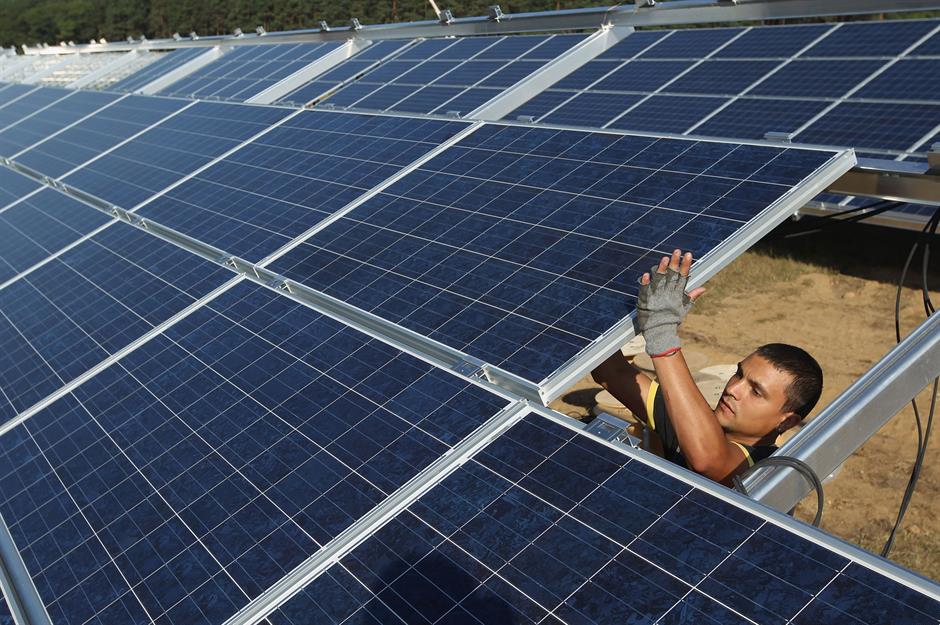
Roughly one-third of the world's electricity is now generated from renewable sources and, as the climate crisis becomes ever more pressing, this figure is set to keep increasing over the coming years.
On top of the urgency to act on global warming, the green transition is being driven by the falling cost of clean energy, with technological advances and economies of scale resulting in increased savings. Solar panels, for instance, have plummeted in price by around 90% over the past decade.
Renewable energy
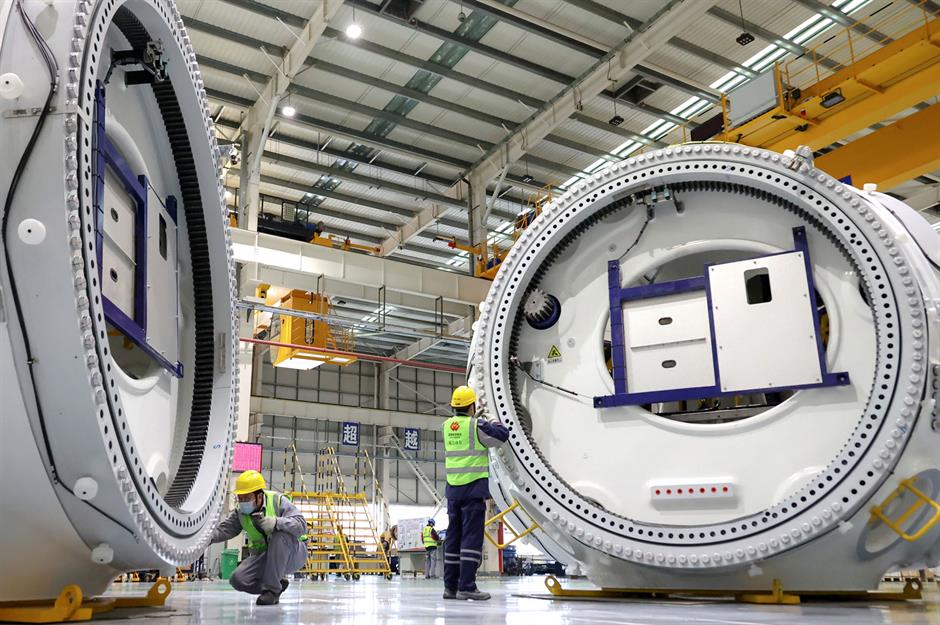
China is the world leader in wind and solar energy production, followed by the US.
Europe derives more of a proportion of its energy needs from carbon-free sources, while a select few nations, most notably Iceland, rely on renewable energy to provide almost 100% of their electricity.
With countries doubling down on their efforts to go green by providing incentives and tax credits galore, the world's largest renewable energy businesses stand to benefit handsomely.
Sponsored Content
Renewable energy
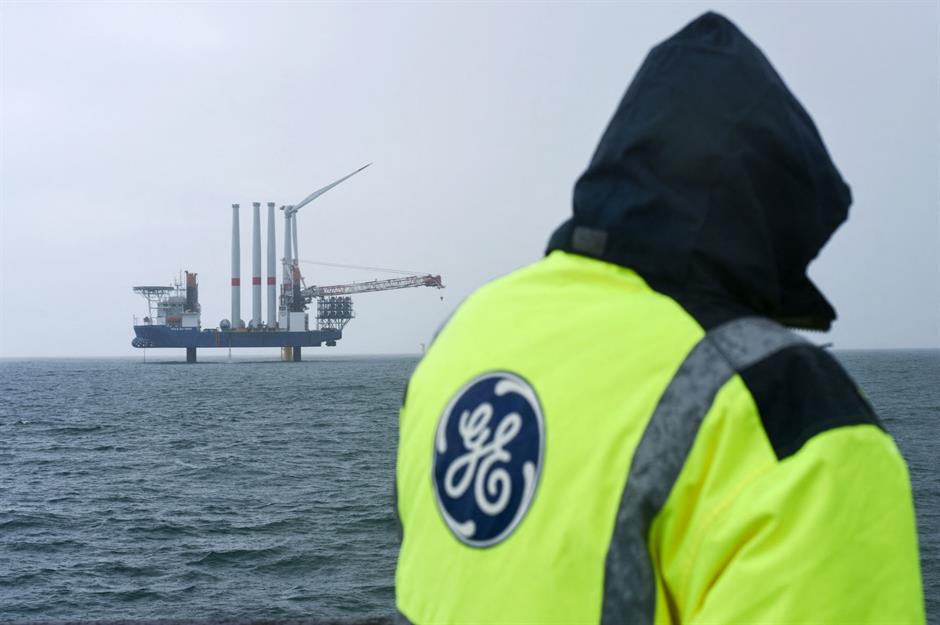
Record growth in renewables is on the cards for this year and the global market is projected to swell to over $2 trillion (£1.6trn) by 2030, up from $856 billion (£668bn) in 2021.
Transitioning legacy players such as America's General Electric and Spain's Iberdrola are currently the largest companies in the field. They're followed by a number of innovative upstarts and specialist firms, including the Danish wind turbine-maker Vestas and JinkoSolar, China's leading solar panel manufacturer.
Electric vehicles
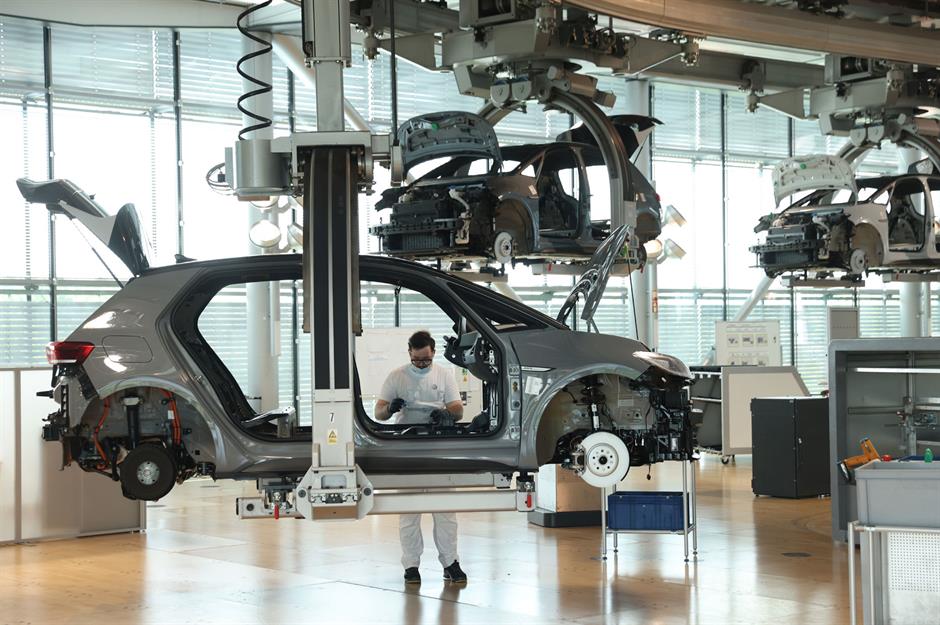
Along with the move from fossil fuels to renewables, the transition to electric vehicles (EVs) is a pivotal part of the push to go green.
While EV sales flagged at the start of 2023 due to factors such as the cost of living crisis and high interest rates, they soon picked up again – in fact, a 20% year-on-year increase in electric car purchases was recorded for the first quarter.
Electric vehicles
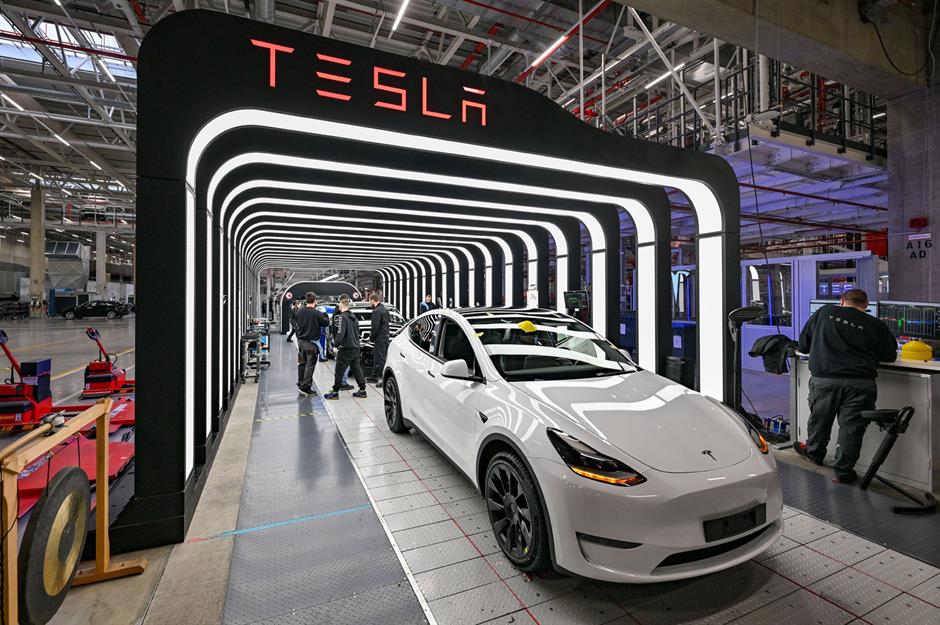
Explosive growth is anticipated, with the International Energy Agency predicting that 60% of all vehicles sold will be electric by 2030.
This represents a bountiful opportunity for both legacy and emerging automakers, with the competition certainly switching up a gear in recent times.
Tesla is the current global leader in terms of pure EV sales, with China's BYD the overall frontrunner when hybrid vehicles are included.
Sponsored Content
Electric vehicles

Meanwhile, legacy players such as VW Group, GM, and Stellantis are finally stepping on the gas and are threatening to potentially topple Tesla.
Relative newcomers such as Lucid Motors and Rivian are also revving up to give Elon Musk's firm a good run for its money.
Driverless cars
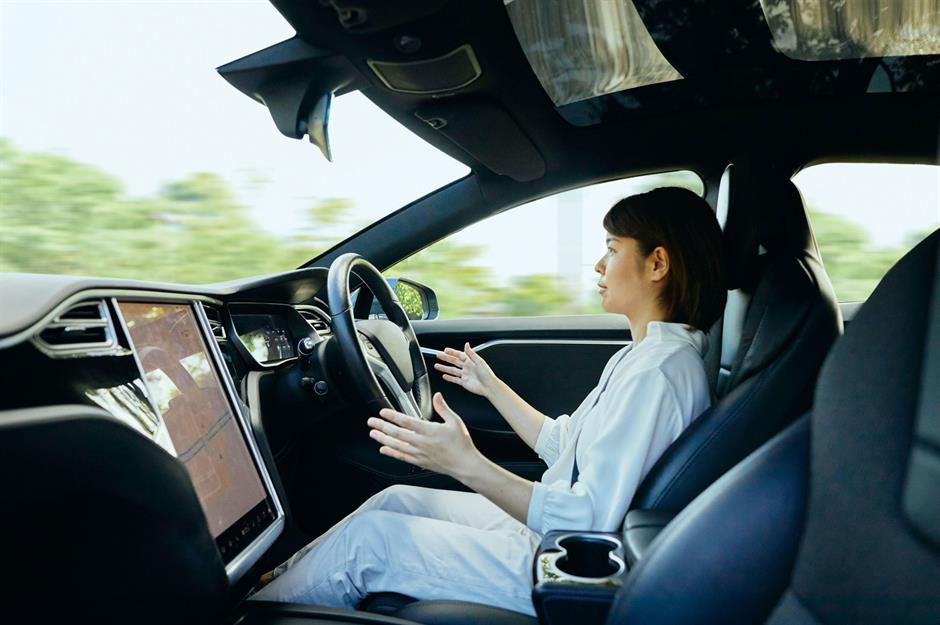
Sticking with the motoring theme, a number of experts believe that autonomous driving will eventually conquer the world.
They anticipate that driverless cars will become commonplace once the technology's many challenges, particularly in terms of safety, are surmounted. As well as being fraught with difficulty, development of such complex technology is incredibly expensive.
Driverless cars
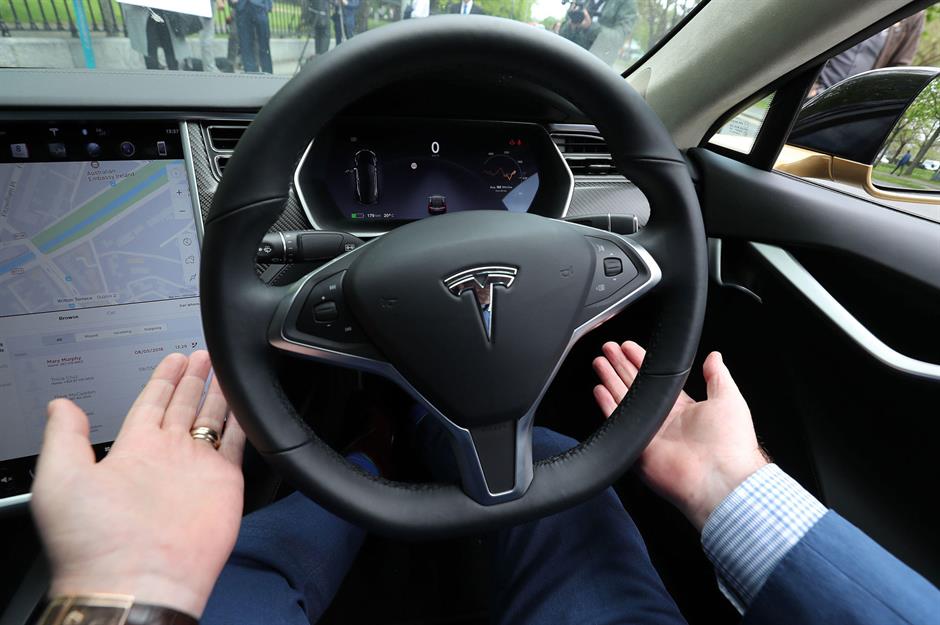
If you think about driverless cars, Tesla might just come to mind. Elon Musk recently said the automaker is close to reaching Full Self-Driving (FSD) and admitted that he believes the company's value is directly linked to whether it will achieve this.
"Being able to do a software update and have several million cars suddenly go from manual driving to autonomous... I think will be the single biggest asset-value increase in history," he revealed in an interview with CNBC last month.
However, Tesla faces tough competition from the likes of Google's Waymo, Microsoft, Uber, Apple, Ford, and Baidu, to name just a few. And it's little wonder...
Sponsored Content
Driverless cars
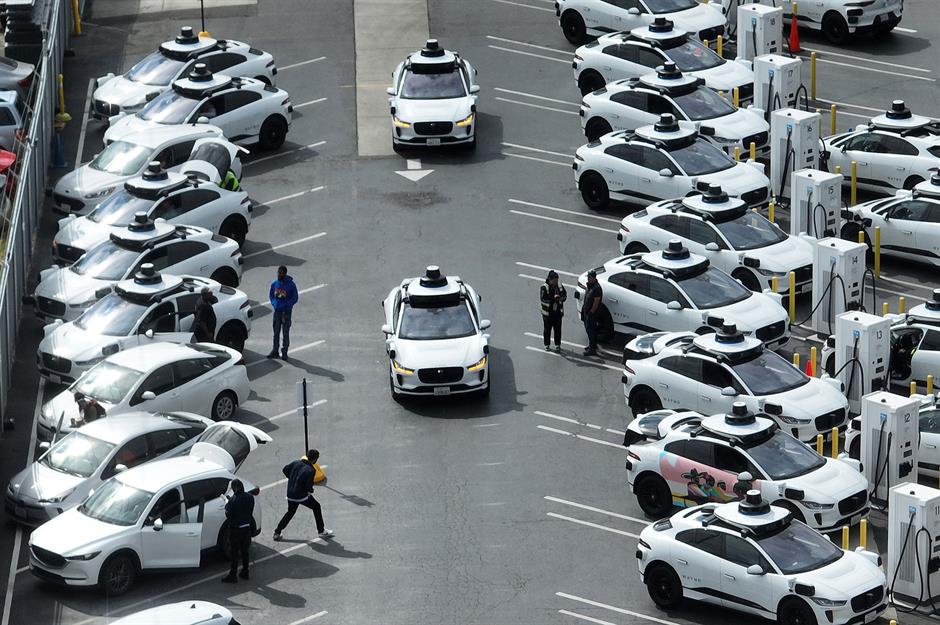
Why? Because the rewards are likely to be colossal, with McKinsey predicting that the autonomous driving market will be worth up to $400 billion (£312bn) by 2035.
Looking further ahead, a study commissioned a few years ago by Intel pegged the value of the self-driving vehicle market at an enormous $7 trillion (£5.5tn) by 2050, which would easily make it one of the planet's most lucrative industries.
Lab-grown meat
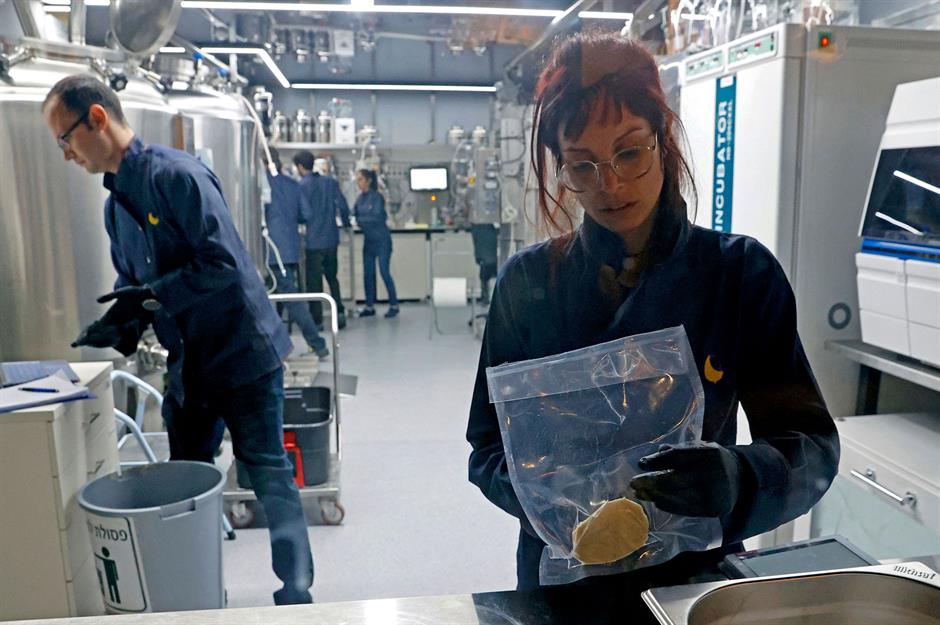
Billed as a sustainable and cruelty-free alternative to the real deal, lab-grown meat is slowly but surely edging closer to widespread commercialisation.
Before that can happen, however, the industry still has a number of hurdles to overcome, including regulatory issues, nurturing consumer acceptance, and scaling up production.
Given the latest market growth forecasts, however, analysts clearly believe that these obstacles can be overcome: according to a McKinsey report, the cultivated meat industry is projected to be worth $25 billion (£20bn) by 2030.
Lab-grown meat

Right now, Singapore is the only nation to have fully permitted the sale of lab-grown meat, although it's currently available to order at just one restaurant (and reportedly only on Thursdays!).
However, in June 2023 US regulators granted label approval to two cultivated chicken companies. Site inspections are pending and if they get the green light, the firms should garner full regulatory approval. Other countries are bound to follow suit, though Italy is seeking to impose a ban.
The leading cultured meat firms are mostly start-ups, though several have the backing of major food corporations, including the likes of Cargill, Tyson Foods, and JBS.
Sponsored Content
Lab-grown meat

The California-based Eat Just and Upside Foods are the two brands that are currently awaiting full approval for their lab-grown chicken. Eat Just is also the company that gained approval in Singapore, making it the first to legally sell cultivated meat.
However, it's Israel, not the US, that has become the centre of the global lab-grown meat industry. The country's biggest names in the sector include Aleph Farms and Believer Meats, which is building the world's biggest cultivated meat plant – though this is located in North Carolina, America, rather than in its home country.
Space tourism
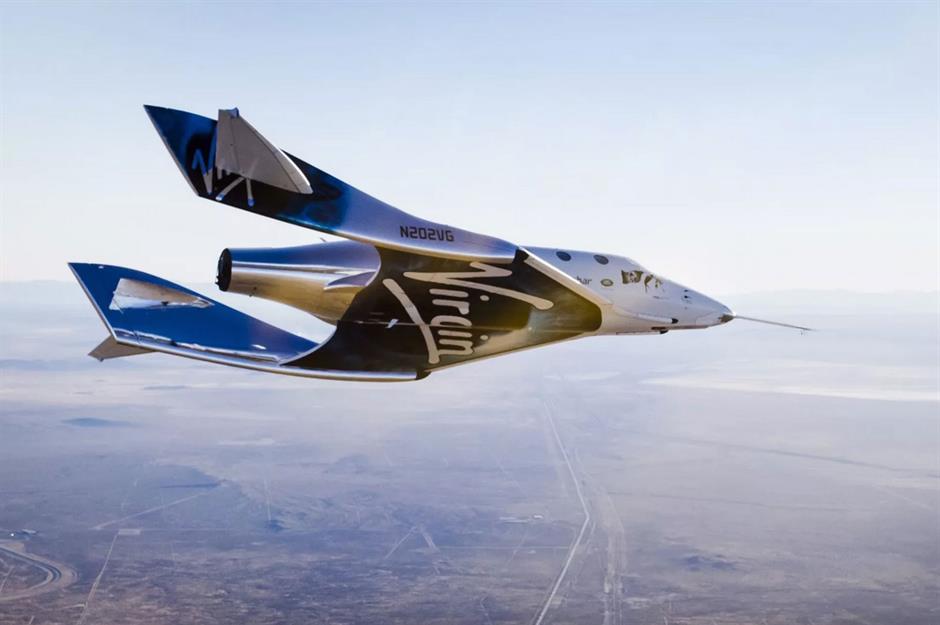
Space tourism is finally lifting off, and according to Precedence Research the market will be worth over $21 billion (£16bn) by 2030, which is a staggering increase from $877 million (£684m) in 2022.
Jeff Bezos's Blue Origin put the first paying customer into suborbital space in 2021, while Richard Branson's Virgin Galactic successfully launched its debut commercial suborbital flight in late June 2023.
Space tourism
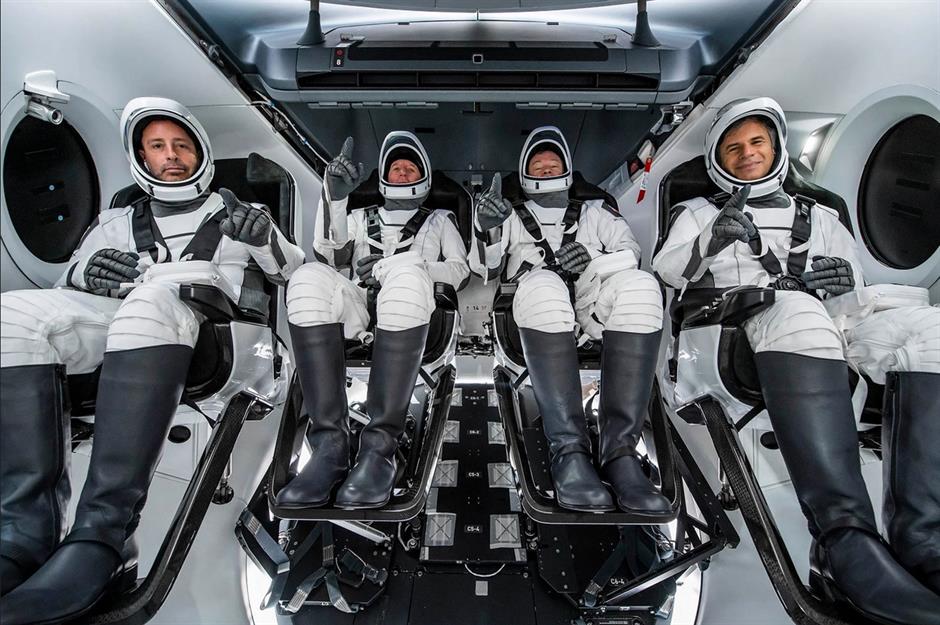
Wealthy space tourists can also opt to book an orbital flight with Elon Musk's SpaceX, while Russia's space agency Roscosmos offers an orbital package too, though this isn't likely to be an option for Westerners at the moment due to the war in Ukraine.
The outrageous cost of commercial space travel has so far made it a very niche industry. Orbital trips are priced at tens of millions of dollars, and while Virgin Galactic's suborbital experience costs significantly less at $450,000 (£351k), it's still an out-of-this-world price for the vast majority of people.
Sponsored Content
Space tourism
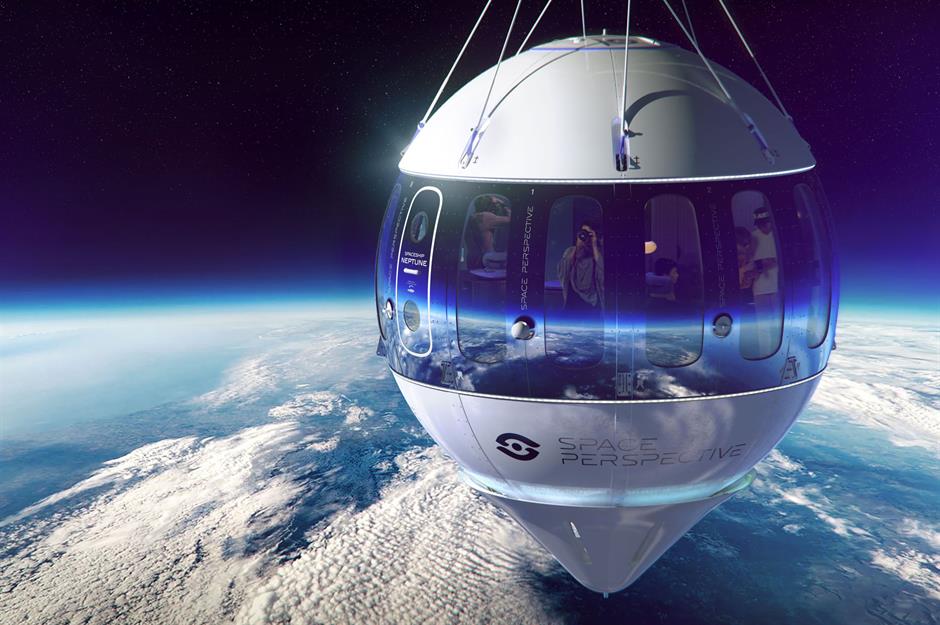
Two start-ups, Space Perspective and World View, are aiming to make space travel more affordable by launching 'balloon' trips into the stratosphere, allowing passengers to marvel at the curvature of the Earth.
Space Perspective will be charging customers $125,000 (£99k) to take to the skies, while World View's package will start from $50,000 (£39k) when it launches next year. By no means cheap, these options are still potentially affordable enough to appeal to a larger customer base than the suborbital and orbital flights can.
Genomics
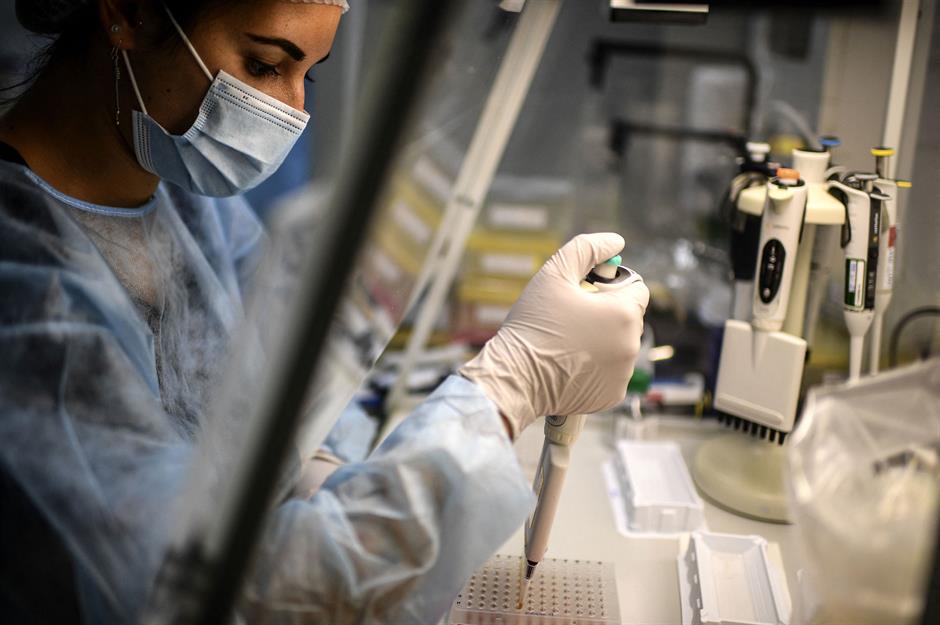
Another industry that's coming on in leaps and bounds is genomics.
The mapping and editing of genomes has the potential to transform preventative healthcare, cure serious illnesses, and create disease-resistant crops, plus a whole lot more besides.
Genomics
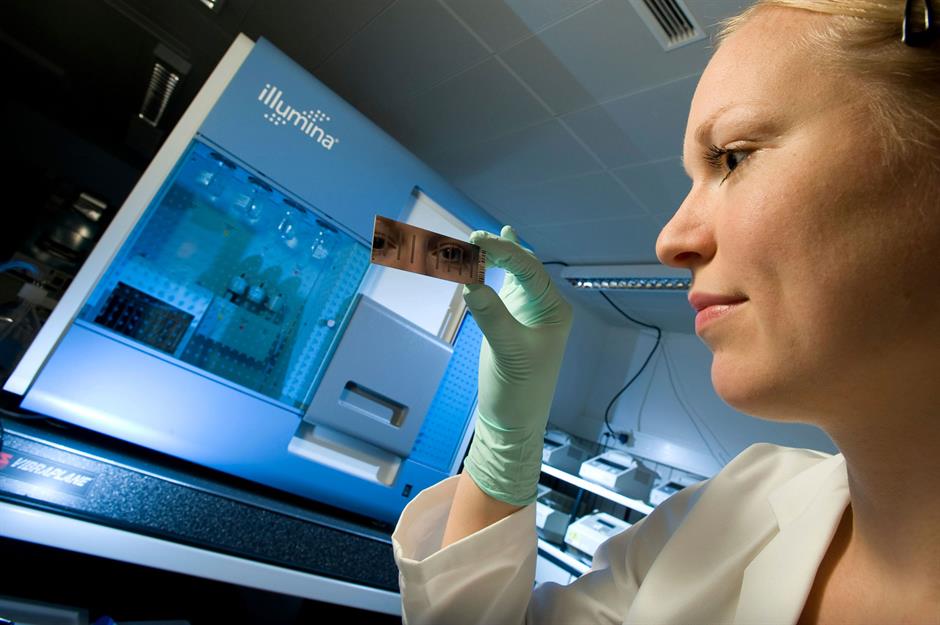
As genome technology has evolved, costs have come down dramatically.
Back in 2001, it cost a staggering $95 million (£75m) to sequence a human genome. Last year, however, the California-based start-up Ultima unveiled its UG 100 sequencer, which maps out an entire human genome at scale for just $100 (£78) a pop.
The firm is one of several new companies that's taking on market leader Illumina, which is headquartered in San Diego.
Sponsored Content
Genomics

The global genomics industry is predicted to be worth almost $100 billion (£78bn) by 2030.
Other important players in this fast-moving sector include the US companies 10xGenomics, Natera, and Blueprint Medicine, Chinese multinational GenScript Biotech, and Switzerland's CRISPR Therapeutics, which uses the CRISPR gene editing platform to develop treatments for various diseases.
Nanotechnology
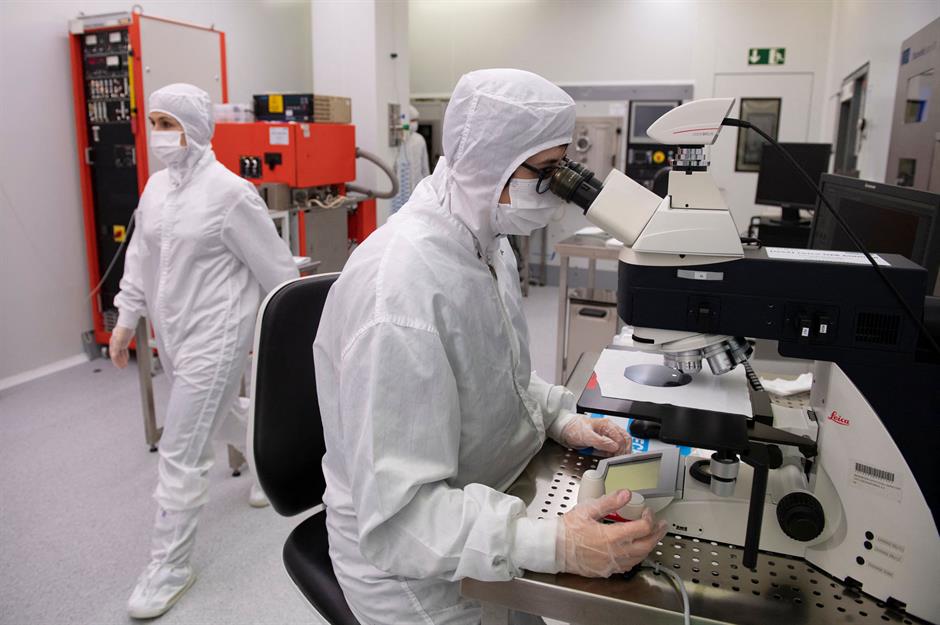
Nanotechnology, which is the manipulation of matter on an atomic scale to create new materials, is also coming on in leaps and bounds.
Amazing discoveries such as carbon nanotubes, nano semiconductors, and nano drug-delivery systems are all revolutionising the likes of manufacturing, medicine, and other key sectors.
Nanotechnology
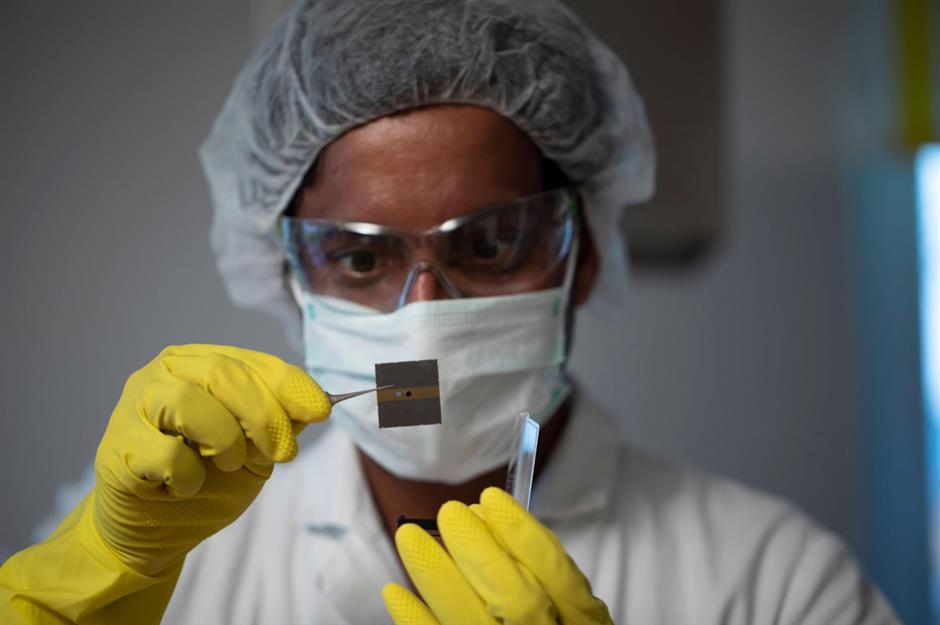
Needless to say, the world's "tiniest" industry (as it was described by Entrepreneur last year) is becoming more impressive by the day.
Valued at $7.3 billion (£6bn) in 2022, the global nanotechnology market will be worth a whopping $115 billion (£90bn) by 2030 according to Data Bridge Market Research. In terms of the countries that are leading the way, the US is at the forefront, with China following closely behind.
Sponsored Content
Nanotechnology
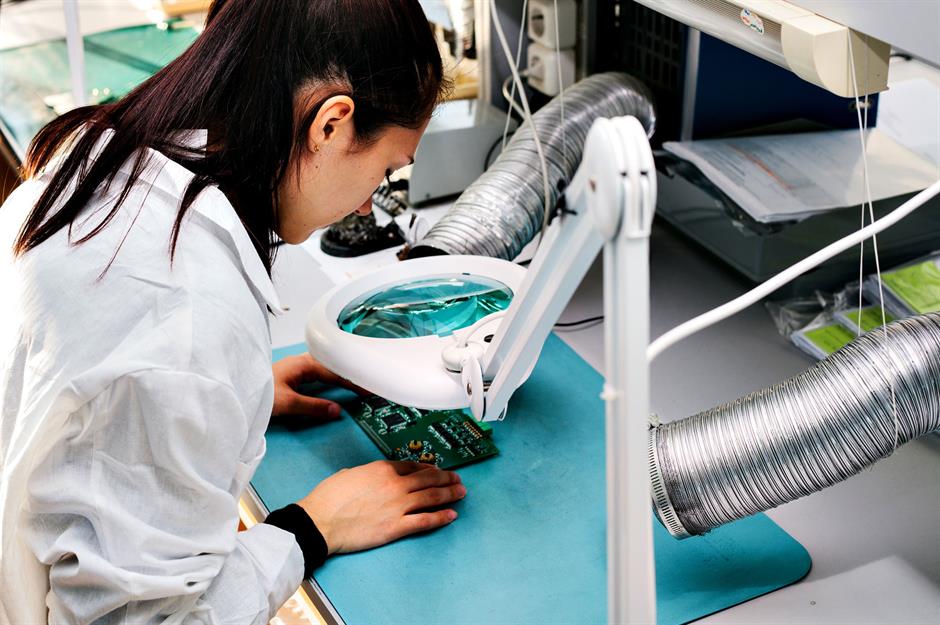
The likes of Germany, Japan, France, and South Korea are also all embracing the technology with gusto.
Companies leading the march include American firms such as Thermo Fisher Scientific, Applied Materials, Honeywell, IBM, and Altairnano, along with Taiwan Semiconductor, South Korea's ANP, and French manufacturer Arkema.
Now discover the new jobs that people will be doing in the future
Comments
Be the first to comment
Do you want to comment on this article? You need to be signed in for this feature